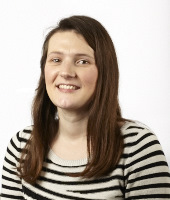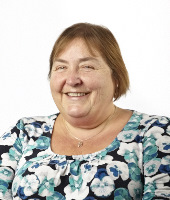Early Years, BA Hons (Top-up)
Already Level 5 early years qualified? Our top up course will enhance your knowledge to develop in different areas of the early years whilst honing skills on placements & putting theory into practice.
The early years degree is designed to offer a contemporary, inclusive, and responsive curriculum to learners who will develop into autonomous, competent, confident practitioners.
Our degree has placements at the core and as a student you will be in placement 2 days per week for the entirety of our programme. Our dedicated early years facilities include a simulated early years nursery, so academic lessons are practical and realistic and will prepare you for future employment. You will also have a wide range of experiences to support your study for example forest school, outdoor learning centres and specialist settings.
The degree meets the QAA benchmarks to enable you to practice in early years settings, and throughout the degree you will meet Graduate Practitioner competencies.
Course closed
UCAS points
104 (full requirements below)
Course/institution codes
X314 G BA/EYEd
Interested in a different year?
This course is no longer recruiting for 2025/26.
Select your preferred
to view up to date information.
School
Location
Duration
- 1 year full-time
- 2 years part-time
Start month
September
Home /international fees 2025/26
£9,535 /£17,500
What you should know about this course
What you will study

Rebecca D.S. Bolan
Academic Portfolio Lead for Early Years and Primary Education

Jill Harrison
Associate Professor and Programme Leader for Early Years
About the course team
The programme is delivered by a highly experienced team of academics and industry professionals. Our team brings a wide range of specialties to the course and our collaboration across the School of Health Sciences and with external agencies brings greater depth, knowledge, and expertise from professions that you will be working with during your time at university and practice placements
Come and meet us
We are offering virtual events so you can still experience how Greenwich could be the right university for you.
Next Open Days
Got a question?
To find out more about our Open Days and Campus Tours or if you need any assistance, please email opendays@gre.ac.uk.
Entry requirements
Course closed
Qualifications
- Foundation degree in Early Years with at least 55% or relevant HND at grade Merit.
- In addition, you will need: GCSE Mathematics at grade 4/C and GCSE English Language/Literature at grade 4/C. Equivalent qualifications may be considered.
Applicants with a degree in an unrelated subject may be considered if they have relevant experience within the early years workforce.
Application and selection
- Suitable applicants will be required to attend an interview.
- Applicants will also be required to:
- Complete a Suitability Declaration.
- Pass an Occupational Health check.
- Pass an Enhanced Disclosure and Barring Service (DBS) check.
For more information, use our contact form or call us on 020 8331 9000.
You can also read our admissions policy.
Available to overseas students?
Yes
Can I use Prior Learning?
Find out more on our Recognition of Prior Learning pages.
How you will learn
Teaching
Learning takes place through a combination of timetabled learning and independent study.
You can view more information about how each module is taught within our 'What you will study' section.
Seminars and workshops enable you to discuss and develop your understanding of topics covered in lectures in smaller groups. You will also be able to meet your personal tutor. Timetabled learning may fall between 9am and 9pm depending on your courses and tutorials.
Class sizes
Class sizes vary by module. Lectures are normally attended by larger groups, and seminars/tutorials by smaller groups. This can vary more widely for modules that are shared between degrees. All students will have opportunities for 1-to-1 time with their tutors.
Independent learning
Outside of timetabled sessions, you are also expected to dedicate around 30 hours a week to self-study. This may involve further reading and research, preparing coursework and presentations, and preparing for tests and exams. Our facilities are designed to support you in these activities.
We encourage you to join societies and participate in sporting and other activities to engage in the wider life of the university community.
Overall workload
If you are studying full-time, you should expect the workload to be similar to a full-time job. For part-time students, this will reduce in proportion with the number of courses you are studying.
Each module you study towards this degree is worth 15 or 30 credits. These represent around 150 or 300 study hours respectively. If you receive 100 contact hours for a 30-credit module, you should expect to commit 200 hours to independent study to complete it successfully.
Assessment
You can view how each module is assessed within our 'What you will study' section.
Each course has formal assessments which count towards your grade. Some courses may also include 'practice' assignments, which help you monitor progress and do not count towards your final grade.
Feedback summary
We aim to provide feedback on assignments and to release examination results within 15 working days.
Dates and timetables
The academic year runs from September to June.
Full teaching timetables are not usually available until term has started. For any queries, please use our contact form.
Fees and funding
Tuition fees
| Cohort | Full time | Part time | Distance learning |
|---|---|---|---|
| Home | £9,535 | £2,384 per 30 credits | N/A |
| International | £17,500 | £4,375 per 30 credits | N/A |
University is a great investment in your future. English-domiciled graduate annual salaries were £10,500 more than non-graduates in 2023 - and the UK Government projects that 88% of new jobs by 2035 will be at graduate level.
(Source: DfE Graduate labour market statistics: 2023/DfE Labour market and skills projections: 2020 to 2035).
Other costs
Further costs may include (but are not limited to):
- Resources: you may need to purchase books for your studies or resources to support your study (estimate, £100 per year)
- Field trips: you may need to contribute towards any trips required for your course (estimate, £50)
- DBS: You will need a completed enhanced Disclosure and Barring Service (current cost is £53) carried out through the University if you do the early years teachers status or graduate practitioner award.
- Training: You may wish to complete the food handlers/food hygiene certificate (current cost is under £15)
- Transport: You will need to pay for the cost of travel to placements.
Scholarships and bursaries
We offer a wide range of financial help including scholarships and bursaries.
The Greenwich Bursary
This bursary is worth £700 for new undergraduate students with a low household income, entering Year 0 or 1 who meet the eligibility criteria.
EU Bursary
Following the UK's departure from the European Union, we are supporting new EU students by offering a substantial fee-reduction for studying.
Financial support
We want your time at university to be enjoyable, rewarding, and free of unnecessary stress, so planning your finances before you come to university can help to reduce financial concerns. We can offer advice on living costs and budgeting, as well as on awards, allowances and loans.
Careers and placements
What sort of careers do graduates pursue?
If you do the Early Years Teachers Status or the Graduate practitioner award alongside your degree, you will need experience with babies, Toddlers and the older child and may need placements to achieve this.
Do you provide employability services?
Our Employability & Careers Service (ECS) is committed to supporting our students and recent graduates in their transition towards a rewarding graduate destination. We aim to empower our students to achieve their potential, with support including:
- CV and cover letter checks
- Application support
- One-to-one careers advice
- Interview tips and support
- Careers fairs
- Internships
- Graduate jobs.
Accommodation
Greenwich
Living in halls of residence is a great way to make new friends and get into the social side of university life. With four great locations, all minutes away from the campus and the centre of historic Greenwich , you will be at the heart of one of the most beautiful university settings in the UK.
Rooms start at £146.30/wk and include Wi-Fi, utility bills, access to our on-campus gym and 24-hour security - and just a 10-minute train journey to central London. Students based at our Greenwich campus can also choose to live the Student Village at Avery Hill, which is only a short ride on our free shuttle bus.
Support and advice
Academic skills and study support
We want you to make the most of your time with us. You can access study skills support through your tutor, our subject librarians, and our online academic skills centre.
Where appropriate, we provide support in academic English and mathematics. If you need to use particular IT packages for a specific module, we provide training for this.
Support from the department
Our friendly and supportive staff are committed to supporting you during your studies.
Not quite what you were looking for?
We've got plenty of other courses for you to choose from. Browse our undergraduate courses or check our related courses below.....
Early years studies at the University of Greenwich
Study how young children develop, learn and think, and find out how to give them the best start in education. You’ll gain an array of practical skills, both on placement and in the classroom.
Visit our early years studies degrees page.
Early years studies degrees
Mode of study
Select from the dropdown below.
| Course level | |
| UCAS code | |
| Duration | |
| Location |







